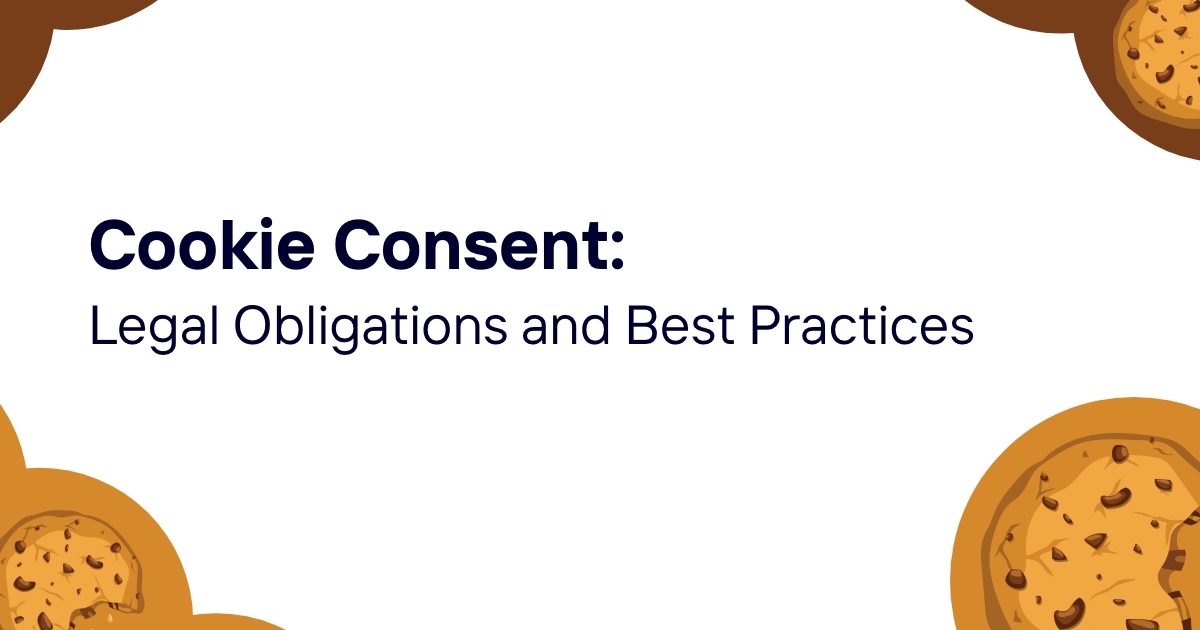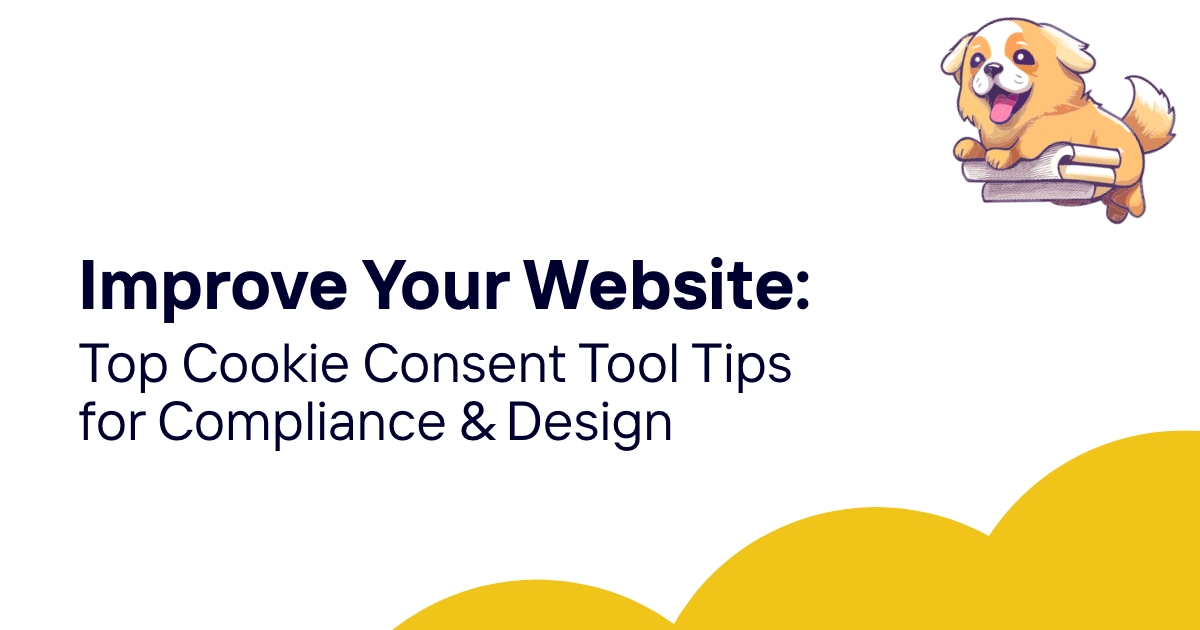Table of Contents
- Introduction
- What Is Cookie Consent?
- The Importance of Cookie Consent
- Types of Cookies
- Legal Requirements for Cookie Consent
- Best Practices for Implementing Cookie Consent
- Common Mistakes to Avoid
- The Future of Cookie Consent
- Tools for Managing Cookie Consent
- Conclusion
Introduction
In our digital world, websites use tiny files called cookies to remember user preferences and track online behavior. But with growing privacy concerns, getting user permission to use these cookies has become a big deal. This article dives into the nitty-gritty of cookie consent - what it is, why it matters, and how to do it right.
What Is Cookie Consent?
Cookie consent is pretty straightforward: it's when a website asks visitors if it's okay to store cookies on their devices. These cookies are small text files that websites use to remember things about you, like your login info or what's in your shopping cart.
But it's not just about asking nicely. Cookie consent is a legal requirement in many places, especially in the European Union under the General Data Protection Regulation (GDPR). It's all about giving users control over their personal data.
The Importance of Cookie Consent
Why should we care about cookie consent? Well, it's not just a box-ticking exercise. Here's why it matters:
-
Legal compliance: Many countries now require websites to get consent before using cookies. Ignoring this can lead to hefty fines.
-
User trust: When you're upfront about your cookie use, visitors are more likely to trust your site. And trust is gold in the online world.
-
Data protection: By giving users a choice, you're helping protect their personal information. It's the right thing to do.
-
Transparency: Cookie consent forces websites to be clear about what data they're collecting and why. No more sneaky tracking!
-
User control: It gives power back to the users. They can decide what information they're comfortable sharing.
Types of Cookies
Not all cookies are created equal. Let's break down the main types:
-
Strictly necessary cookies: These are the bare minimum cookies needed for a website to function properly. Think login sessions or remembering what's in your shopping cart.
-
Preference cookies: These remember your choices on a website, like language settings or theme preferences.
-
Statistical cookies: Also known as analytics cookies, these help website owners understand how visitors use their site.
-
Marketing cookies: These track your online behavior to show you targeted ads. They're often the most controversial.
Here's a quick overview:
| Cookie Type | Purpose | Requires Consent? |
|---|---|---|
| Strictly necessary | Basic website functionality | No |
| Preference | Remember user choices | Yes |
| Statistical | Analyze site usage | Yes |
| Marketing | Targeted advertising | Yes |
Legal Requirements for Cookie Consent
The legal landscape around cookies is complex and varies by region. Let's look at some key regulations:
-
GDPR (European Union): This is the big one. GDPR requires explicit, informed consent for all non-essential cookies. Users must be able to refuse cookies and still access the site.
-
ePrivacy Directive (EU): Often called the "Cookie Law," this directive works alongside GDPR to regulate online privacy.
-
CCPA (California, USA): While not as strict as GDPR, CCPA gives California residents the right to opt out of the sale of their personal information, which can include data collected by cookies.
-
LGPD (Brazil): Brazil's data protection law is similar to GDPR and requires consent for cookie use.
-
POPIA (South Africa): This law requires organizations to get consent before processing personal information, including through cookies.
The takeaway? If you're running a website, you need to be aware of these laws and how they apply to your users.
Best Practices for Implementing Cookie Consent
Getting cookie consent right isn't just about following the law. It's about respecting your users and building trust. Here are some best practices:
-
Be transparent: Clearly explain what cookies you use and why. No jargon, please!
-
Make it easy: Your cookie consent mechanism should be user-friendly. Don't bury it in legalese.
-
Provide options: Let users choose which types of cookies they want to accept. All-or-nothing isn't cool.
-
No pre-ticked boxes: Under GDPR, consent must be actively given. Don't assume consent.
-
Make it visible: Your cookie banner should be noticeable without being intrusive.
-
Keep records: Document user consent. You might need to prove compliance later.
-
Regular updates: Review and update your cookie policy regularly. Tech and laws change fast!
-
Respect choices: If a user says no to cookies, honor that decision. Don't keep asking.
-
Educate users: Provide links to more information about cookies and your privacy policy.
-
Test across devices: Make sure your cookie consent works well on desktop, mobile, and tablets.
Common Mistakes to Avoid
Even with the best intentions, it's easy to slip up when implementing cookie consent. Here are some common pitfalls:
-
Using cookie walls: Forcing users to accept all cookies to access your site is a no-no under GDPR.
-
Ignoring mobile users: Your cookie consent should work just as well on smartphones as on desktops.
-
Overly complex language: If your cookie policy reads like a legal textbook, users won't understand it.
-
Not updating consent: If you add new cookies or change how you use them, you need to get fresh consent.
-
Assuming one size fits all: Different regions have different laws. Your cookie consent should be adaptable.
-
Neglecting third-party cookies: Don't forget about cookies set by external services like analytics or social media plugins.
-
Hiding the opt-out: Make it as easy to opt out of cookies as it is to accept them.
-
Immediate cookie dropping: Wait for consent before setting non-essential cookies.
-
Incomplete information: Be specific about what data you collect and how you use it.
-
Ignoring user preferences: If a user has set their browser to block cookies, respect that choice.
The Future of Cookie Consent
The world of online privacy is always evolving. Here's what we might see in the future of cookie consent:
-
Stricter regulations: As privacy concerns grow, we can expect more comprehensive laws around data collection.
-
Browser-level controls: Some browsers are already implementing built-in cookie consent mechanisms.
-
AI and machine learning: These technologies could help create more personalized and intuitive consent experiences.
-
Shift away from third-party cookies: With Google planning to phase out third-party cookies, we might see new tracking technologies emerge.
-
Global standards: As online businesses become more international, we might see a push for unified global privacy standards.
-
Increased user awareness: As people become more privacy-conscious, they'll expect more control over their data.
-
Integration with other privacy tools: Cookie consent might become part of broader privacy management systems.
The key takeaway? Stay flexible and keep an eye on emerging trends and regulations.
Tools for Managing Cookie Consent
Implementing cookie consent doesn't mean you have to reinvent the wheel. There are plenty of tools out there to help:
-
Consent Management Platforms (CMPs): These tools help you manage cookie consent across your website. They often include customizable banners and consent logging.
-
WordPress plugins: If you're using WordPress, there are numerous plugins designed specifically for cookie consent.
-
Custom solutions: For more control, you might want to build your own cookie consent system. Just make sure it meets all legal requirements.
-
Browser extensions: Some extensions can help users manage their cookie preferences across multiple sites.
-
GDPR compliance software: Broader compliance tools often include cookie consent features as part of their package.
When choosing a tool, consider factors like ease of use, customization options, and compatibility with your existing systems.
Conclusion
Cookie consent isn't just a legal box to tick. It's about respecting user privacy, building trust, and creating a better internet for everyone. By understanding the ins and outs of cookie consent, you can protect your users and your business.
Remember, the world of online privacy is always changing. Stay informed, be transparent, and always put your users' privacy first.
For businesses looking to streamline their GDPR compliance efforts, including cookie consent management, tools like ComplyDog can be invaluable. ComplyDog offers an all-in-one GDPR compliance solution tailored for software businesses. By automating many aspects of GDPR compliance, including cookie consent management, ComplyDog helps companies navigate the complex landscape of data protection regulations efficiently and effectively.


















